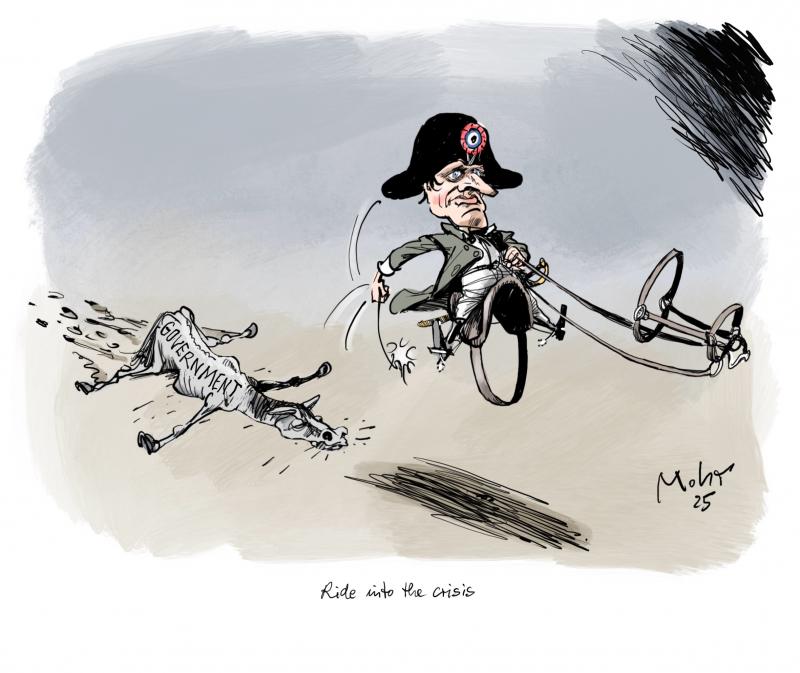A first in France: on 8 September, Prime Minister François Bayrou (MoDem, centrist) lost the confidence vote that he himself had requested in the National Assembly by 364 votes to 194. Weakened by scandals and his proposed budget for 2026 – which some critics deemed overly austere and unfair – Bayrou resigned the day after. He has been in charge since 13 December 2024. On the same day, president Emmanuel Macron appointed former Defence Minister Sébastien Lecornu, a close ally, as Bayrou's successor.
For some observers, the fall of the Bayrou government is merely the natural conclusion of a predictable collapse. The government faced the unenviable task of finding a way out of the political, economic and social crisis that marks the end of Emmanuel Macron’s decade of power.
France is now plunged back into uncertainty: the spectre of another dissolution of the National Assembly looms large, which could radically reshuffle the deck. The 10 September “shutdown” and the 18 September strike may end up paralysing the country: the end of the crisis is still a long way off.
Do you like our work?
Help multilingual European journalism to thrive, without ads or paywalls. Your one-off or regular support will keep our newsroom independent. Thank you!
















